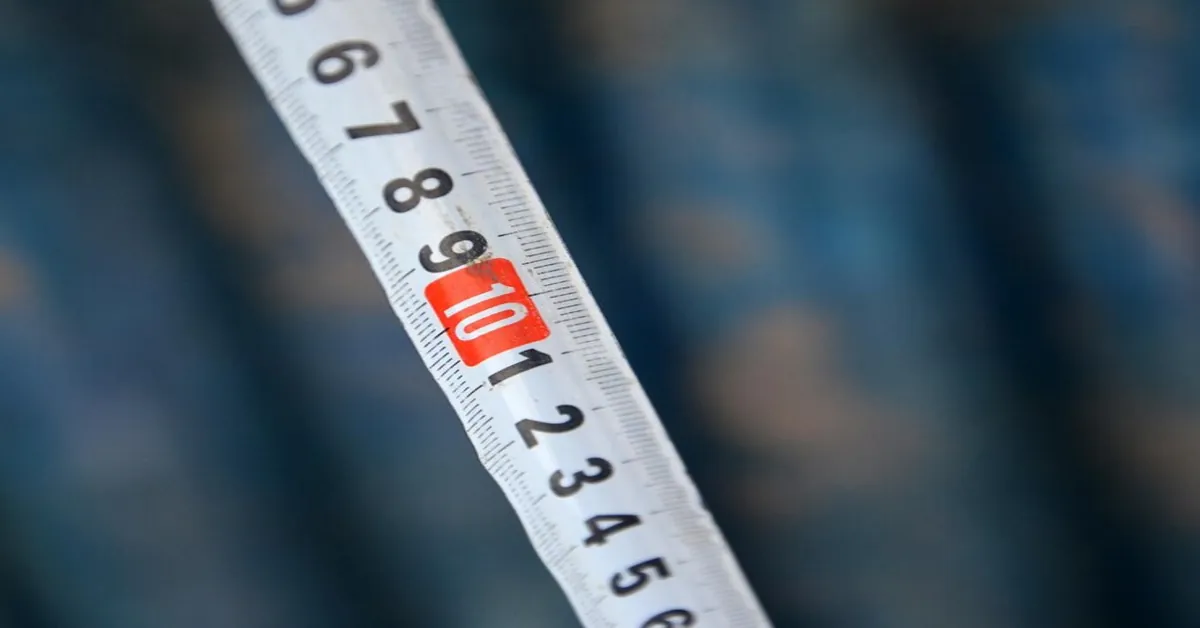Whether you’re working on a DIY project, buying hardware, dealing with product specs, or sewing a garment, precise measurements matter. Many countries use the metric system (millimeters, centimeters, meters), while the U.S. and a few others rely on the imperial system (inches, feet). This often creates confusion, especially with small measurements like 8mm. Understanding how to convert 8mm to inches bridges this gap and ensures accuracy.
The Quick Answer: What is 8mm to Inches?
8 millimeters = 0.31496 inches (rounded to 5 decimal places)
To make it simpler: 8mm ≈ 0.315 inches
This tiny number can make a big difference, especially in technical or professional settings. Let’s dive deeper into the math behind this conversion.
Understanding the Metric vs. Imperial Systems
The metric system is decimal-based and used by most of the world. It’s precise, consistent, and based on powers of 10. The imperial system, on the other hand, is rooted in older measurements and is still commonly used in the U.S.
| System | Unit | Equivalent |
|---|---|---|
| Metric | Millimeter (mm) | 1/1000 of a meter |
| Imperial | Inch | 1/12 of a foot |
When dealing with small measurements like 8 millimeters, the differences between these systems become more noticeable.
Conversion Formula: 8mm to Inches Explained
To convert 8mm to inches, use this simple formula:
inches = millimeters ÷ 25.4
Example:
CopyEdit8 ÷ 25.4 = 0.31496 inches
So, 8mm is equal to 0.31496 inches.
Here are a few other useful conversions for context:
- 1 mm = 0.03937 inches
- 5 mm = 0.19685 inches
- 10 mm = 0.39370 inches
8mm to Inches Chart for Quick Reference
| Millimeters (mm) | Inches (in) |
|---|---|
| 1 mm | 0.03937 in |
| 5 mm | 0.19685 in |
| 8 mm | 0.31496 in |
| 10 mm | 0.39370 in |
| 12 mm | 0.47244 in |
| 15 mm | 0.59055 in |
Having a chart like this saves time when you’re converting on the go.
Common Uses of 8mm in Daily Life
You’d be surprised how often 8mm shows up in everyday situations:
- Jewelry sizes: Chains, rings, and earrings often list sizes in mm.
- Camera lenses: 8mm lenses are popular in vintage or action cameras.
- Bolts and nuts: Many metric fasteners are 8mm in diameter.
- Pens and tools: Pen barrel diameters and drill bits often measure 8mm.
- Home improvement: Tiles, spacers, or wood panels may come in 8mm thickness.
8mm in Inches: Real-Life Object Comparisons
To give you a better feel for what 8mm looks like, here are some relatable comparisons:
- Standard pencil lead = approx. 7–8mm in diameter
- A stack of 8 sheets of paper = close to 8mm thick
- Two stacked nickels = around 7.9mm thick
- A woman’s wedding band = often around 6–8mm wide
These visuals help make the abstract number more tangible.
Digital Tools for Conversion
While it’s great to understand the manual formula, you can also use:
Conversion Tools:
- Google Search: Just type “8mm to inches” and Google gives the answer instantly.
- Online Calculators: Tools like RapidTables or UnitConverters.net.
- Mobile Apps: Apps like “Unit Converter” or “ConvertPad” are handy on the go.
These tools are helpful when dealing with odd values like 8.4mm, 8.75mm, or precision measurements in engineering or crafting.
Why Precision Matters in Measurement
Accurate conversion isn’t just about numbers—it’s about avoiding costly errors.
Here’s how incorrect conversions can affect real-life scenarios:
- Construction: An error of even 1mm can throw off the alignment of tiles or panels.
- Mechanical engineering: An 8mm bolt won’t fit into a 5/16″ (7.9375mm) hole.
- Fashion design: Small sizing mistakes can alter how a garment fits.
- 3D printing: Precision down to the millimeter ensures your model prints correctly.
Bottom line: Don’t round too much unless it’s for casual purposes.
Conclusion: Measure Smart, Stay Accurate
Converting 8mm to inches may seem minor, but it plays a significant role in accurate measurements across many industries. Knowing that 8mm equals approximately 0.315 inches helps you bridge the gap between the metric and imperial systems confidently.
Whether you’re building, crafting, or shopping online, always double-check your measurements!
FAQs: 8mm to Inches Conversion
Q1: Is 8mm less than half an inch?
Yes, 8mm is about 0.315 inches, which is less than 0.5 inches (1/2 inch).
Q2: How do I convert 8mm to inches without a calculator?
Use the rule of thumb:
1 mm ≈ 0.04 inches
So, 8mm ≈ 8 x 0.04 = 0.32 inches
Q3: Why is the conversion factor 25.4?
Because 1 inch is defined as exactly 25.4 millimeters by international agreement since 1959.
Q4: What’s the difference between 8mm and 5/16 inch?
- 8mm = 0.315 inches
- 5/16 inch = 0.3125 inches
They are very close but not identical. Use the right one for exact fits.
Q5: Can I use 8mm and 5/16 inch interchangeably?
In casual use, maybe. But in precision work like carpentry, mechanics, or engineering, use the correct size.
Call-to-Action
Found this guide helpful? Share it with your friends, bookmark it for future use, or leave a comment below!
Want more quick measurement guides? Subscribe to our newsletter for tips, charts, and tools sent to your inbox weekly!









